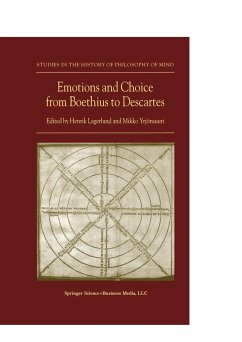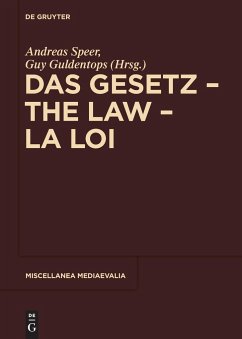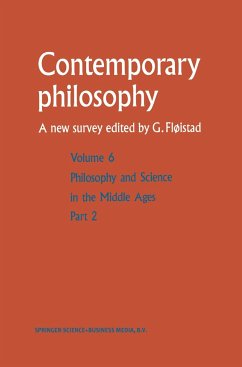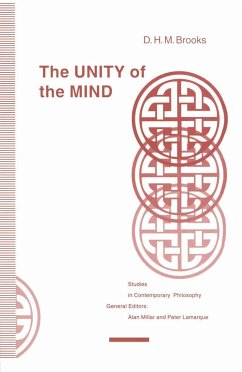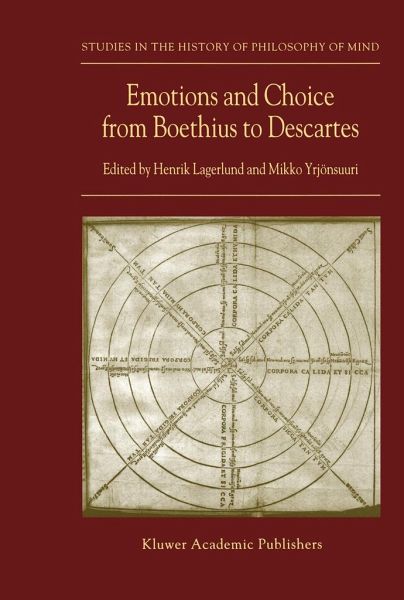
Emotions and Choice from Boethius to Descartes
Versandkostenfrei!
Versandfertig in 1-2 Wochen
77,99 €
inkl. MwSt.
Weitere Ausgaben:

PAYBACK Punkte
39 °P sammeln!
As with almost all books, this one took much longer to complete than we thought when we started. It began within the research project "Actions and Passions of the Mind from 1200-1700" which was financed by the Nordic Research Council in the Humanities (NOS-H) between 1999 and 2001, but as the topic became clearer the book grew and the final product involves several people outside the original group in the NOS-H project. Many of the papers published here started as talks given at meetings of the project, but no meeting resembles the finished book. Indeed, all the articles are, in the end, writt...
As with almost all books, this one took much longer to complete than we thought when we started. It began within the research project "Actions and Passions of the Mind from 1200-1700" which was financed by the Nordic Research Council in the Humanities (NOS-H) between 1999 and 2001, but as the topic became clearer the book grew and the final product involves several people outside the original group in the NOS-H project. Many of the papers published here started as talks given at meetings of the project, but no meeting resembles the finished book. Indeed, all the articles are, in the end, written just for this volume. One of the overarching aims of the NOS-H project was to highlight the continuity between medieval and modem philosophy of mind, and, as edi tors, we also took this perspective when planning the volume. The individual articles pertain to give an accurate and philosophically interesting treatment of the thinker or period they discuss, but nonetheless the overall picture isone of continuity between not only medieval and early modem psychology of action, but also between late ancient and medieval thinking on emotions and choice.





